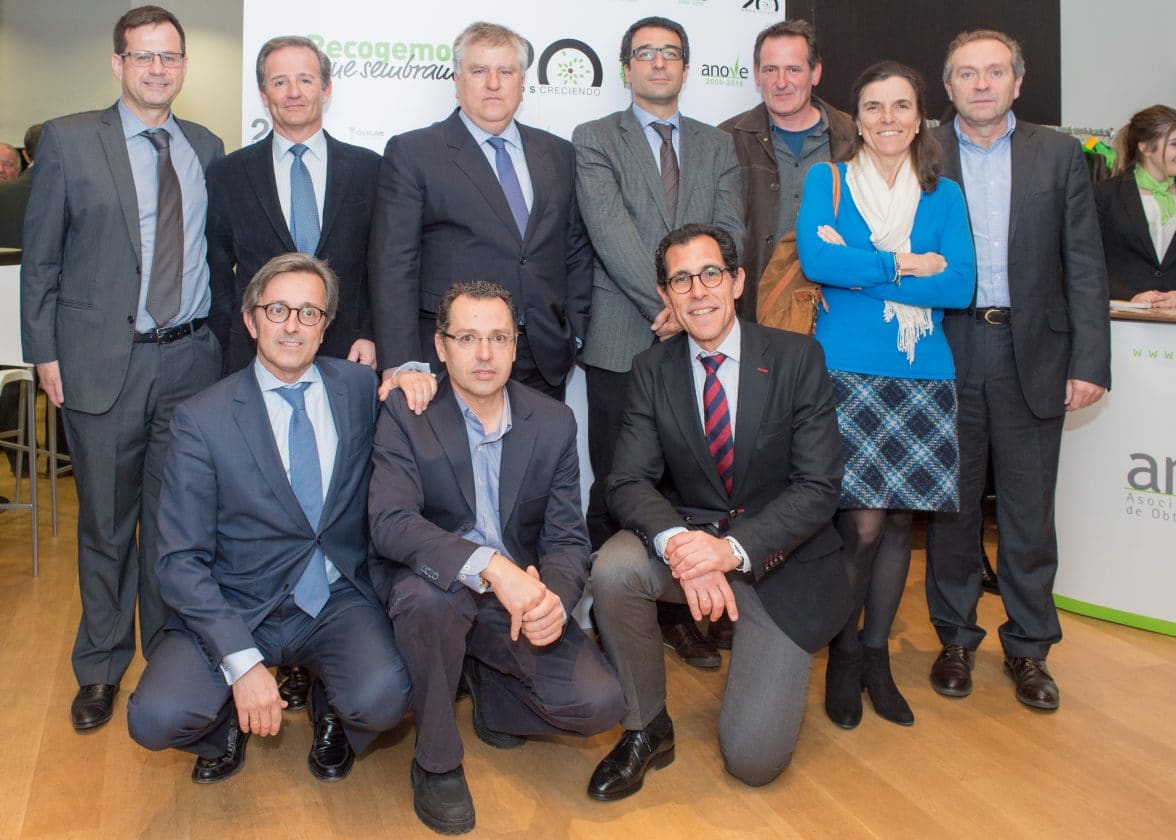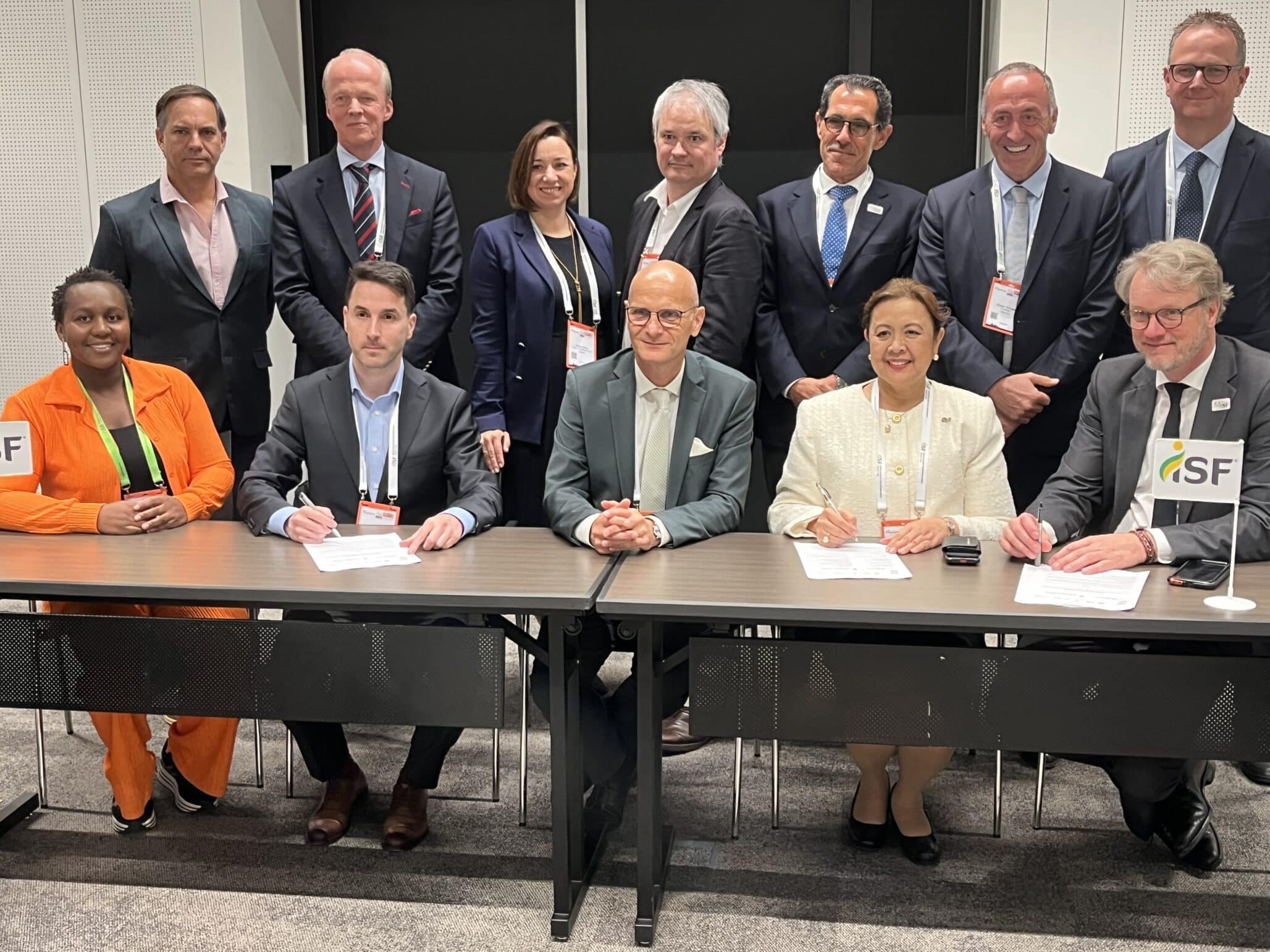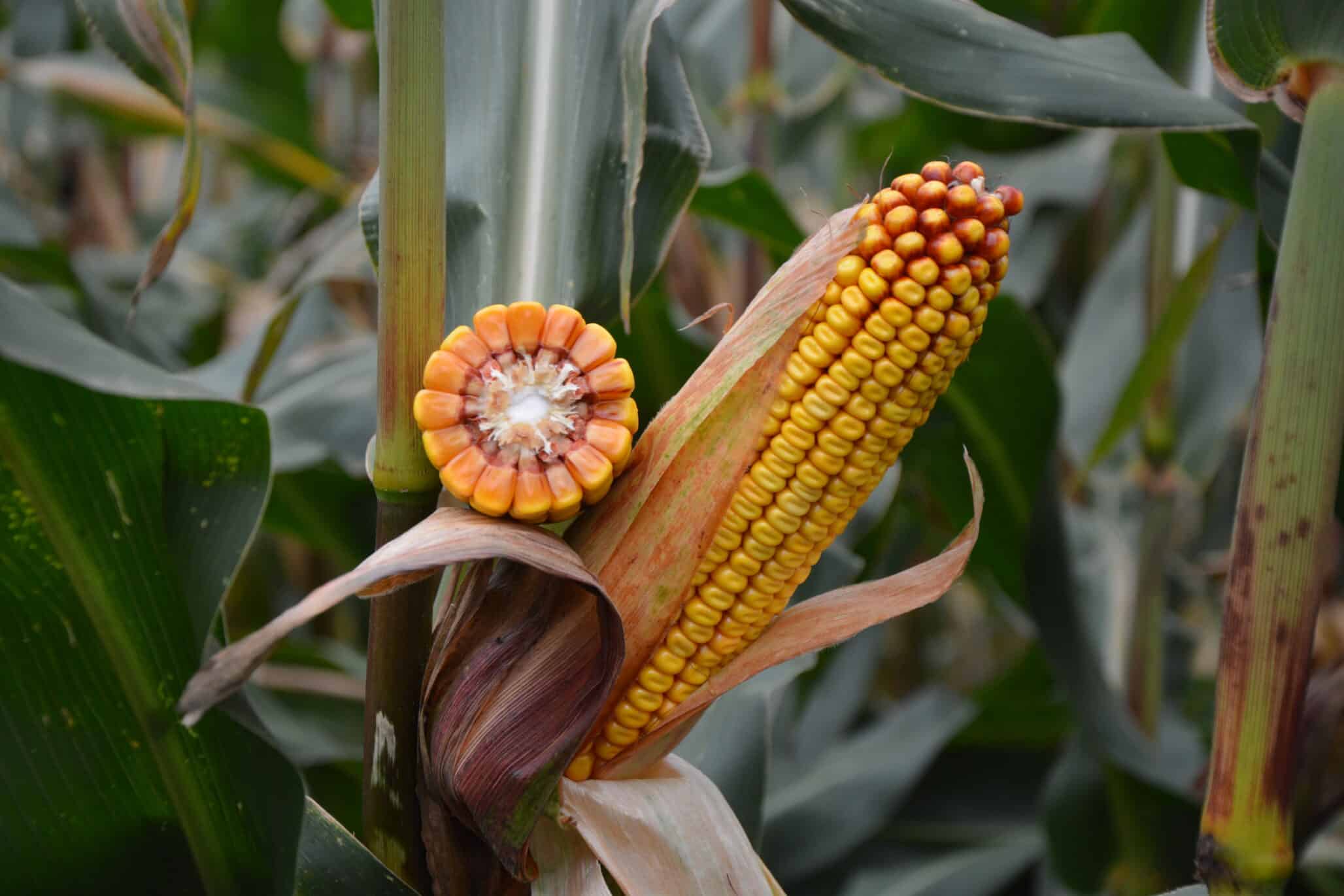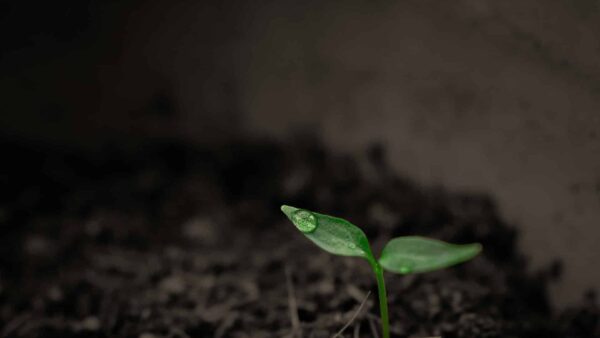A closer look at the Spanish Association of Plant Breeders (ANOVE)
Plant breeding is a highly technological activity of great economic importance, based on the research and development of new plant varieties. The plant breeders respond to end consumer demand and allow the economic, environmental, and social sustainability of the entire food chain, as well as the chain of consumption related to industrial crops.
Between the 1960’s and the year 2000, there were spectacular increases in all crops, which grew between one and three per cent annually. About 40 per cent of this increase in productivity corresponds to the improvement of plant varieties (Source: Responding to the challenges of a changing world: the role of new plant varieties and high quality seed in agriculture. Second World Seed Conference. FAO. 2009).
Plant reproductive materials
The start of the food chain and other chains of consumption is the seed. Traditionally, seed tends to be forgotten and people start to talk about the plant and the product obtained, but before that there is an indispensable phase that involves the seed, the only indispensable input for the sustenance of the chain of consumption as we understand it, secure and diverse.
The seed has value that is still not given enough significance, not only for farmers, but especially for consumers and for society in general.
What is ANOVE?
The National Association of Plant Breeders (ANOVE) is a private non-profit association, founded in 2006, which brings together companies and public centres dedicated to the generation of added value in the food sector through research and development in and the use of new varieties of plants.
ANOVE is an instrument necessary for contributing to solving the challenges facing Spanish agriculture, collaborating with government authorities and with organisations representing the different stakeholders and sectors of agricultural production.
Its members are responsible for putting over 95 per cent of the varieties used in main crops on the market: vegetables, sweet fruits, berries, maize, cereals, sunflower, sugar beet and cotton.
Composition of ANOVE
ANOVE is made up of 53 entities, of which 51 are private companies and two are public research centres. The associated companies play a fundamental role in the agricultural sector, as researchers and suppliers of a technology that is essential to agricultural development: the new plant varieties.
The 53 entities that belong to ANOVE have a turnover of over €1 billion a year, of which around €650 million correspond to the seed business. More than 2,500 people work in these companies, most of them highly qualified personnel. Eighty one per cent of these organisations have R&D departments that gives work to 30-35 per cent of the staff. Due to the high technological qualification of the workers, the production ratio per worker comes to 230,000 €/worker per year.
Furthermore, ANOVE is a member of the European Seed Association (ESA), the International Seed Federation (ISF) and the International Community of Breeders of Asexually Reproduced Ornamental and Fruit Varieties (CIOPORA). The Spanish Association of Plant Breeders contributes to voicing the interests of the seed industry in EU politics and at the international level.
As member of ESA, ANOVE fully supports the European Seed Treatment Assurance Scheme (ESTA) and has been an ESTA Agent since 2014. ESTA is the European quality assurance scheme for the application of plant protection products to seed treatment, handling and use of treated seed.
What is ANOVE’s mission?
ANOVE’s mission is to represent the plant breeding sector promoting the knowledge and recognition of its work, and at the same time defending the interests of consumers, farmers, and rural regions. ANOVE contributes to the development of the sector through collaboration with public administrations, organisations representing different stakeholders and sectors of agricultural production and consumers.
ANOVE works for agriculture that is innovative, competitive, and sustainable, one which values and has full access to plant improvement, thus contributing to food safety and the economic development of society.
ANOVE is an instrument necessary for contributing to solving the challenges facing Spanish agriculture, collaborating with government authorities and with organisations representing the different sectors of agricultural production. To do so, it pursues the following aims, classified by interest groups or stakeholders:
- Government
- DIALOGUE, as a representative of the plant breeding industry, with public administrations, especially regarding Research & Development plus Innovation (R&D+I) policy.
- REPRESENTATION AND COORDINATION of the breeding sector present in Spain before national and international bodies and associations, particularly regarding technological aspects.
- Associates
- The PROTECTION of the intellectual property rights of plant breeders.
- To create a FORUM for plant breeder analysis, study, evaluation, and activity regarding legislation and regulation related to the sector and new plant varieties.
- SUPPORT TO THE PLANT BREEDING SECTOR regarding technological aspects of the treatment and processing of seeds and plants. Technology allows the entire chain of value to be improved, from growth until the transformation of the final product.
- Society
- COLLABORATION with public research centres and universities. R&D+I investment is the key for breeding new plant varieties adapted to our territory and for providing value to the whole food chain.
- The PUBLICISING AND DEFENCE of the value of plant breeding and new technologies in agriculture. As well as the PUBLICISING of the key importance of seeds as the origin of the food chain to SOCIETY IN GENERAL. The improvement of varieties contributes to creating higher-quality, long lasting and safer food, also increasing the offer in terms of quality, quantity, and seasonal availability.
- The DEFENCE OF FARMERS and their right to get certified seeds adapted to their local needs, and to have guarantees of transparency and traceability on this market.
- The DEFENCE OF CONSUMERS and their right to have a variety of safe, high-quality foods during every season of the year.
Our challenges
Plant variety protection on seeds and plants – plant breeders need strong and effective intellectual property protection (IP), essential to meet the challenges mankind has to face. Plant breeding requires substantial, long‐term and high‐risk investments, and IP ensures an acceptable return on research investment. This is a prerequisite to encourage further research efforts and the motor for further innovation.
Since 2014, GESLIVE (the Spanish acronym for ‘Gestion de Licencias Vegetales’) is a subsidiary of ANOVE and its main role is management, protection and defence of Plant Variety Rights (PVR). This involves legal assistance, licenses management, inspection activities and enforcement of PVR.
The access to plant genetic resources is a key issue for our sector; the legislation itself is quite complex and imposes new obligations on users. The EU regulation implementing the Nagoya Protocol should consider the specific situation of plant breeding and existing systems on access and benefit sharing as the International Treaty of the FAO have to be enforced.
New plant breeding techniques require political decisions based on scientific criteria instead of ideological reasons. Disproportionate regulation of these new techniques will leave them out of the tools used in plant breeding in the nearest future in Europe, which will cause great damage in the European seed industry.
Biotechnology
With almost 20 years of experience growing GM maize varieties, Spain continues to lead the production of Bt maize in Europe. The adoption of these varieties has been increased in recent years, due to pest pressure by the European corn borer (Ostrinia nubilalis) and by the stalk borers (Sesamia spp.), being a key tool for the control of these insects by the farmer.
Partnerships among ANOVE members on education programmes, in addition to farmers’ commitment to good agricultural practices implementation, have been key elements to Spain’s successful GM maize production, without restrictive and disproportionate regulations.
As the new EU regulatory framework Directive 2009/128/EC requires the implementation of integrated pest management principles in maize production, GM maize cultivation in Spain demonstrates sustainable maize production in areas affected by corn borers, and has proved to be an excellent tool for farmers in those areas.
Royalty Collection in Spain
Licence management and royalty collection is organized in Spain through GESLIVE. Founded in 1996 following the same model in place in other countries (SICASOV in France, STV in Germany, BSPB in UK), GESLIVE since 2014 has become the IP subsidiary of ANOVE, which holds its whole share capital.
GESLIVE collects royalties from licences to produce and market material of protected plant varieties, about 1,300 varieties and 3,300 licences during 2016. Graphs 1 to 3 sum up the evolution of the GESLIVE activities on licensing.
Regarding to Farm Saved Seed (FSS), the scheme for the collection of remuneration on FSS use of protected varieties was settled in 2011 and is based on two agreements at the national level:
- Organizations representing plant breeders (ANOVE-GESLIVE) and agro-cooperatives (AGRI-FOOD COOPERATIVES)
- ANOVE-GESLIVE with seed producers and processors (ACCOE, APROSE, SEMICAN, ACMLL).
There are also private contracts settled with all those individual seed processors that want to achieve with GESLIVE a similar agreement as these organizations. The aim of the agreements is to establish terms and conditions under which the cooperatives and processors will provide GESLIVE (representing the breeders) with relevant information regarding the processing of FSS under the farmers’ exception and the terms for collection of FSS fees from farmers. GESLIVE administers, supervises the scheme, and collects the FSS royalties on behalf of the right holders.
Another important part of the GESLIVE activities refers to the enforcement of PVR and defence of its members’ IP rights against infringements (“brown bags”, illegal seeds, etc.). On this field, GESLIVE usually acts on behalf of its members, assuming inspection roles, legal advice and taking legal actions in case of infringements.
Following graphic summarizes GESLIVE enforcement activities during the last years:
Where on the web: http://web.anove.es/













